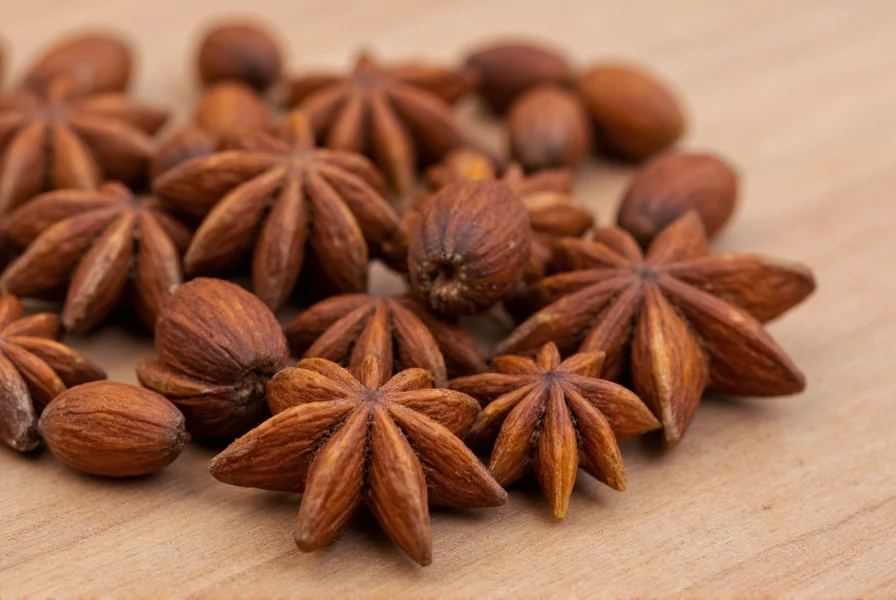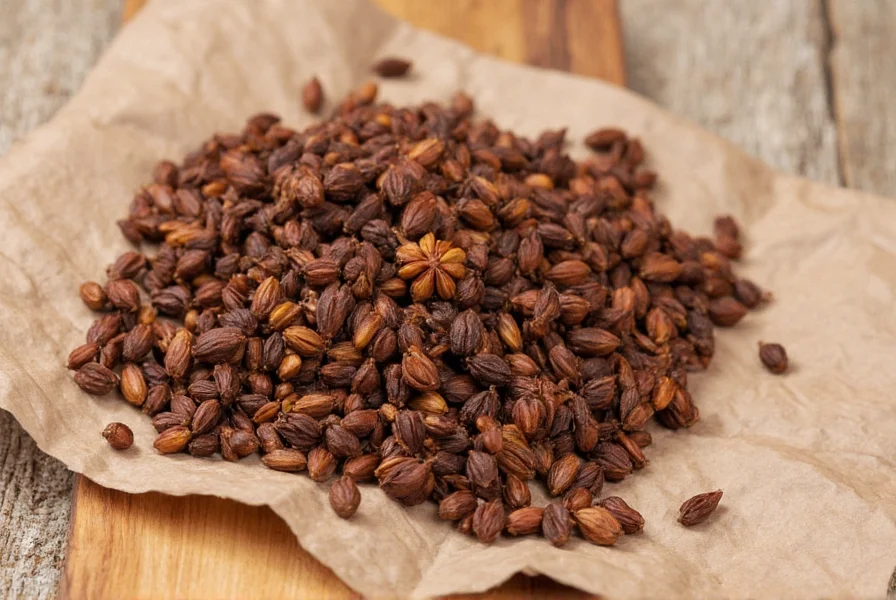Understanding how to properly pronounce culinary and botanical terms can significantly enhance your communication in cooking, bartending, or herbal medicine contexts. Anise, a fragrant spice with a distinctive licorice-like flavor, often causes confusion due to its spelling and relationship to similar terms.
Breaking Down the Pronunciation
The word ‘anise’ contains two syllables that many speakers struggle with. Let’s examine the phonetic components:
| Syllable | Phonetic Spelling | Sound Description |
|---|---|---|
| First | ANN | Short ‘a’ as in ‘apple’, with strong emphasis |
| Second | iss | Short ‘i’ as in ‘miss’ (American) or ‘ize’ (British) |
When saying ‘anise’, ensure you don’t add extra syllables. Many mistakenly pronounce it as ‘a-neeze’ or ‘an-eyes,’ which are incorrect. The proper pronunciation maintains that crisp, two-syllable structure: ANN-iss.
Regional Pronunciation Variations
Like many English words, anise pronunciation shows some transatlantic variation:
- American English: Typically ANN-iss (\ˈan əs\) - rhyming with ‘pannis’
- British English: Often ANN-ize (\ˈan aiz\) - with a longer second syllable
- Australian English: Generally follows British pronunciation but with a flatter vowel sound
These subtle differences won’t hinder understanding, but knowing the regional preferences helps when communicating with international colleagues or following region-specific recipes.
Anise vs. Aniseed: Clearing the Confusion
Many people confuse ‘anise’ with ‘aniseed,’ and their pronunciations differ slightly:
- Anise (the spice): ANN-iss - refers to the ground spice or flavoring
- Aniseed (the seed): ANN-ee-seed - specifically refers to the whole seeds
This distinction matters in professional culinary settings. When a recipe calls for ‘anise,’ it typically means the ground spice, while ‘aniseed’ indicates whole seeds. Using the correct term (and pronunciation) prevents potential confusion in ingredient preparation.

Common Mispronunciations to Avoid
When learning how to say anise correctly, be mindful of these frequent errors:
- AH-kneeze - adding a ‘k’ sound that doesn’t exist in the word
- An-eyes - misreading the ‘ise’ ending as ‘ice’
- An-eez - elongating the second syllable incorrectly
- An-iss-ee - adding an unnecessary third syllable
These mispronunciations often stem from attempting to sound out the word based on similar-looking terms. Remember that English spelling doesn’t always match pronunciation, especially with words of Greek or Latin origin like ‘anise.’
Practical Usage Examples
Hearing the word in context helps cement proper pronunciation. Consider these examples:
- “The recipe calls for one teaspoon of ANN-iss to flavor the biscotti.”
- “In French cooking, ANN-iss often complements fruit-based desserts.”
- “For authentic Mexican mole, you’ll need freshly ground ANN-iss.”
- “The distinctive flavor of ouzo comes from ANN-iss.”
Notice how the word fits naturally into culinary discussions once you’ve mastered its pronunciation. This knowledge proves particularly valuable when shopping for spices or discussing recipes with chefs.

Etymology and Language Roots
Understanding where ‘anise’ comes from helps explain its pronunciation. The word entered English through Latin anisum and Greek anison, ultimately deriving from Arabic anīs. This linguistic journey explains why the spelling doesn’t perfectly match the sound.
Many Romance languages maintain similar pronunciations to the English version:
- Spanish: ah-NEE-seh
- French: ah-NEEZ
- Italian: ah-NEE-seh
When traveling or working with international recipes, recognizing these variations prevents confusion about this versatile spice.
Related Terms Worth Knowing
As you master how to say anise, you might encounter these related terms:
- Star anise: STEHR ANN-iss (distinct star-shaped spice, different plant)
- Anise hyssop: ANN-iss HIS-up (culinary herb)
- Anisette: ANN-ih-set (anise-flavored liqueur)
Each of these maintains the core ANN-iss pronunciation for the ‘anise’ component, making your newfound knowledge applicable across multiple culinary contexts.
Final Pronunciation Tips
When practicing how to say anise correctly, keep these tips in mind:
- Emphasize the first syllable strongly
- Keep it to two syllables only
- Practice saying ‘pannis’ to get the American pronunciation
- Remember it rhymes with ‘vanish’ minus the ‘v’
- Record yourself and compare with native speaker examples
Mastering this pronunciation demonstrates attention to detail that’s appreciated in professional kitchens, cooking classes, and among food enthusiasts. Whether you’re following a complex recipe or ordering ingredients, saying ‘anise’ correctly ensures clear communication and shows culinary sophistication.
How do you pronounce anise in a sentence?
In a sentence, you would say “Add one teaspoon of ANN-iss to the dough.” The emphasis falls on the first syllable with a short ‘i’ sound in the second syllable. For example: “The distinctive flavor of this Italian biscotti comes from freshly ground ANN-iss.”
Is anise pronounced the same as aniseed?
No, there is a subtle difference. ‘Anise’ (the ground spice) is pronounced ANN-iss, while ‘aniseed’ (the whole seeds) is ANN-ee-seed. The distinction matters in culinary contexts where recipes might specify one form over the other.
Why is anise pronounced differently from how it's spelled?
Anise comes from Latin ‘anisum’ and Greek ‘anison,’ which entered English through French. English often preserves original pronunciations of loanwords rather than following standard spelling rules. The ‘ise’ ending follows French pronunciation patterns rather than typical English spelling conventions.
What's the difference between anise and star anise pronunciation?
Regular anise is pronounced ANN-iss, while star anise is STEHR ANN-iss. Both share the same pronunciation for the ‘anise’ component, but star anise includes the word ‘star’ pronounced normally. Despite similar names and flavors, they come from completely different plant families.
How can I remember the correct pronunciation of anise?
Remember that anise rhymes with ‘vanish’ if you remove the ‘v’ (ANN-ish). Another memory aid: think of “ANN gave ISS a spice.” The emphasis always falls on the first syllable, and it contains only two syllables total—never three. Practicing with common phrases like “ground anise” helps cement the correct pronunciation.











 浙公网安备
33010002000092号
浙公网安备
33010002000092号 浙B2-20120091-4
浙B2-20120091-4